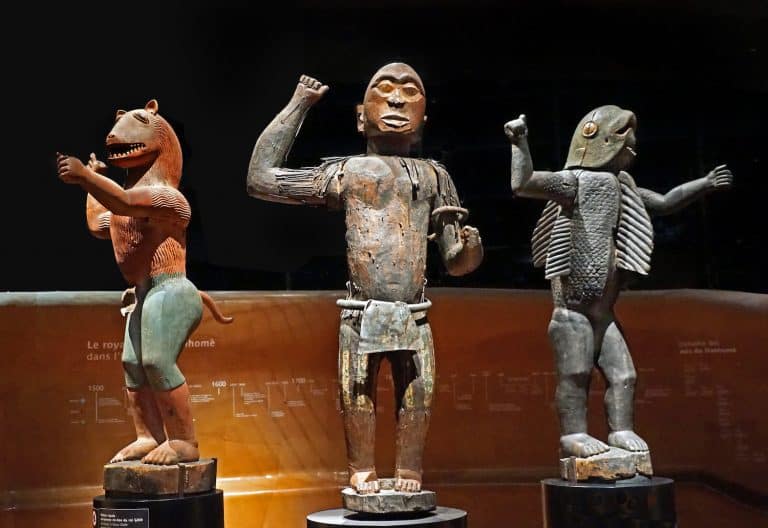The bill marks a milestone in president Macron’s pledge to return looted artefacts to the African continent, but critics are dismissing the move as ‘trompe l’oeil’

On Tuesday the French Assemblée Nationale, the lower chamber of parliament, voted unanimously for the return of 26 artefacts to Benin and Senegal. The items include a royal throne and statues, looted during the 1892 pillaging of the palace of Abomey and held in the collections of the Musée du Quai Branly and a sword and scabbard said to have belonged to Omar Saidou Tall, which has been on long-term loan to the Museum of Black Civilisations in Dakar since last November. The bill will now have to be voted on by the Senate.
The bill marks a milestone after president Macron’s 2017 speech in Ougadougou, in which he pledged the restitution of all African artefacts acquired without consent. The president subsequently commissioned a report by economist Felwine Sarr and art historian Bénédicte Savoy, inquiring into African patrimony held in French museums – which is estimated at 90,000 artefacts – and how to proceed to its restitution.
The restitution measures are in contradiction with French laws which state the inalienability of cultural property in state collections, and French academics and institution directors have expressed concerns about setting a precedent that would threaten the country’s collections.
Ben president Patrice Talon welcomed this ‘small step’ but told magazine Jeune Afrique it was the ‘bare minimum’, which should be followed by ‘global restitution based on a precise inventory’. An op-ed, signed by members of the Representative Council of France’s Black Associations and published in newspaper Libération, criticised the bill as a ‘trompe l’oeil’ restitution, pointing out that it amounted to 0.8 percent of the Beninese artefacts that need to be returned, and only 0.008 percent of Senegal’s.